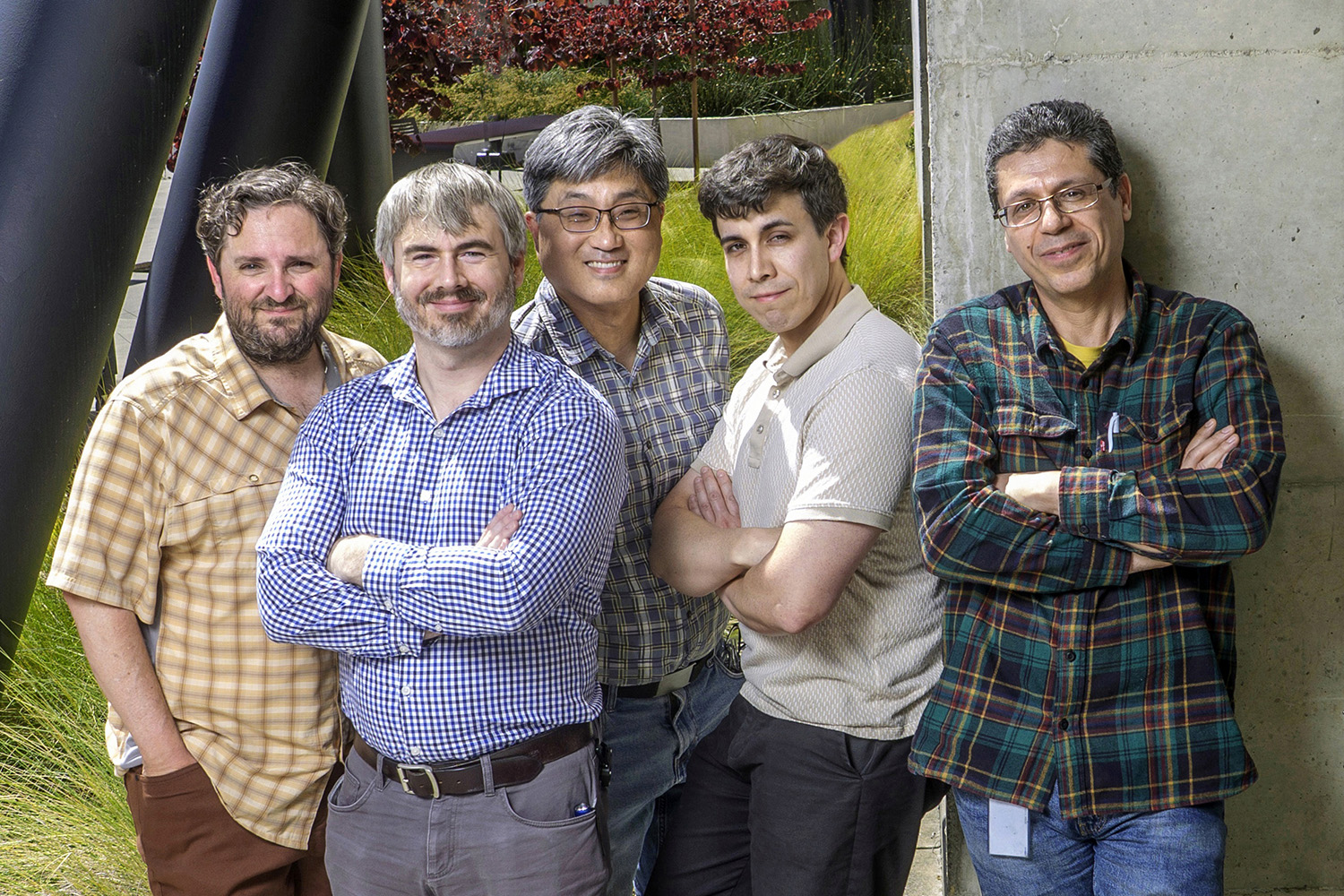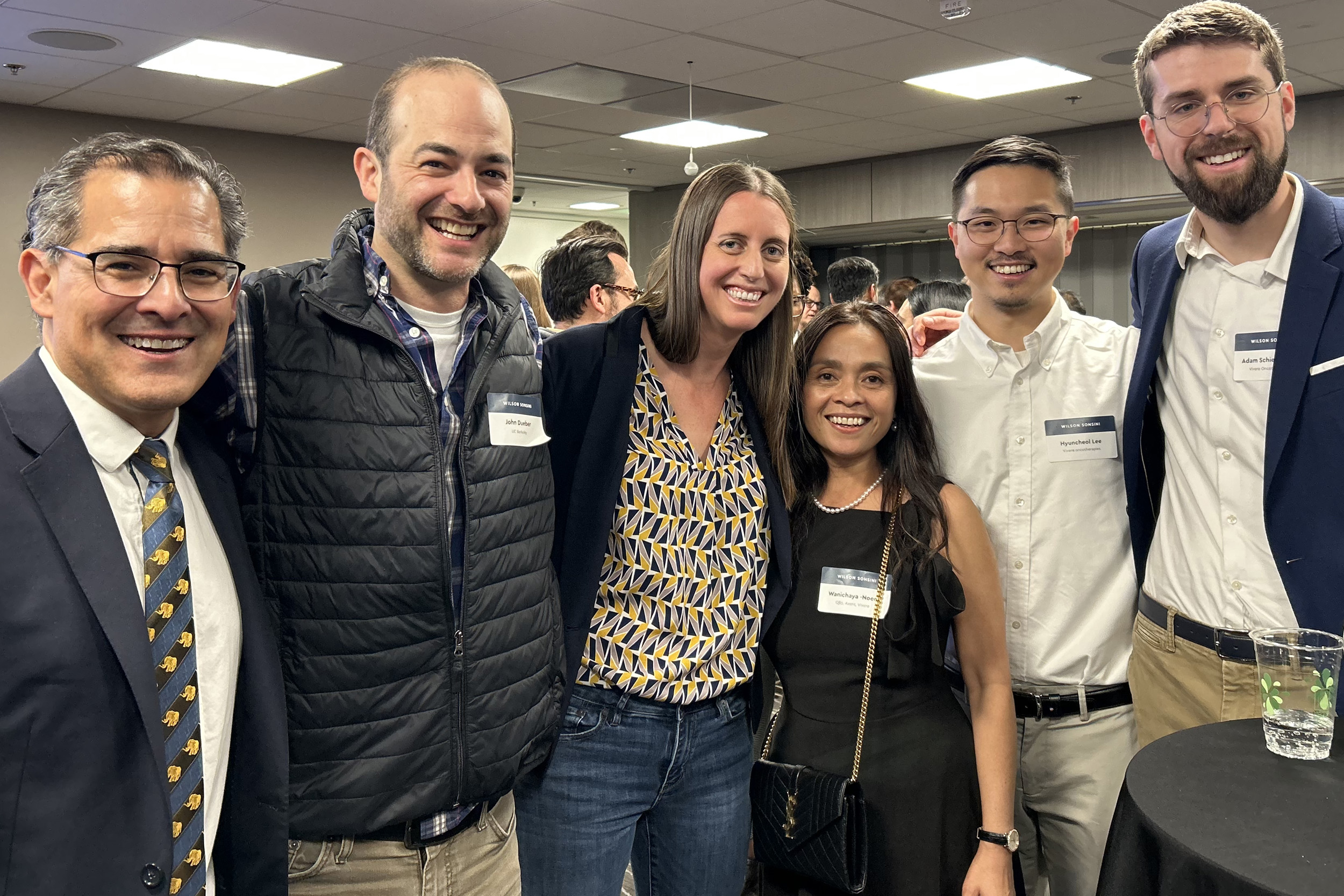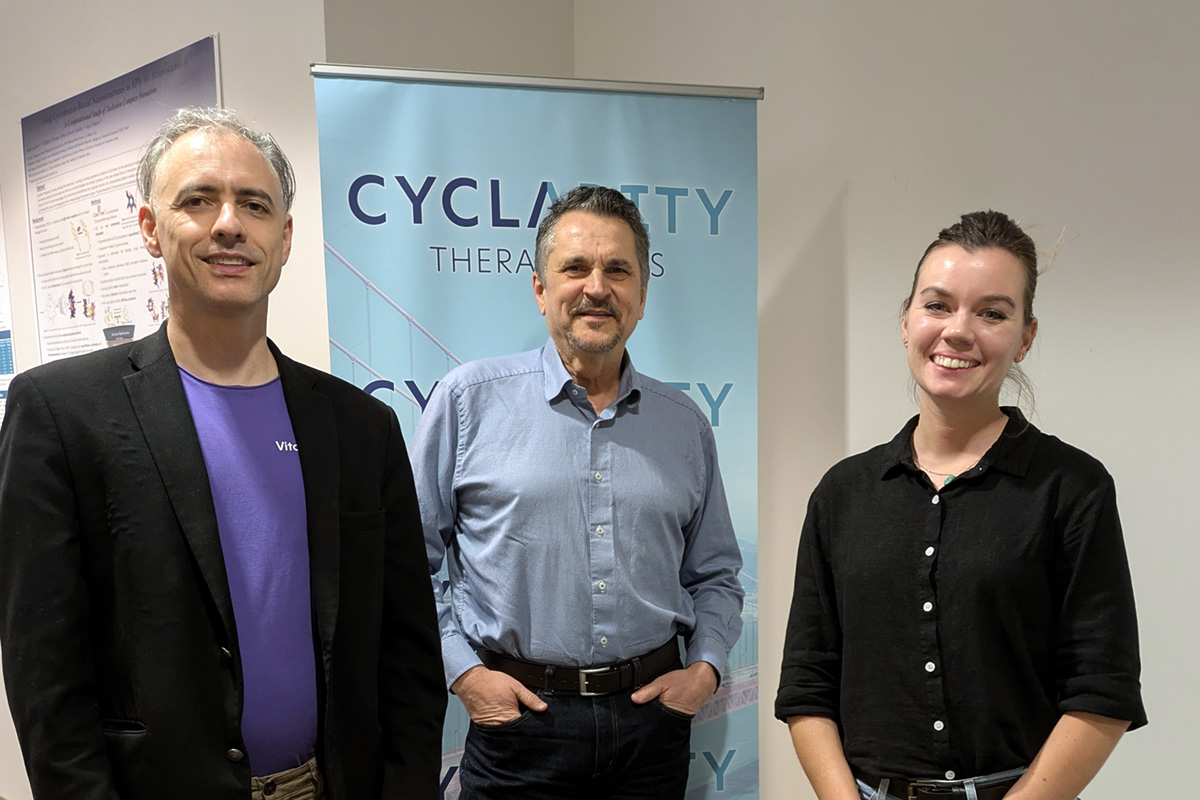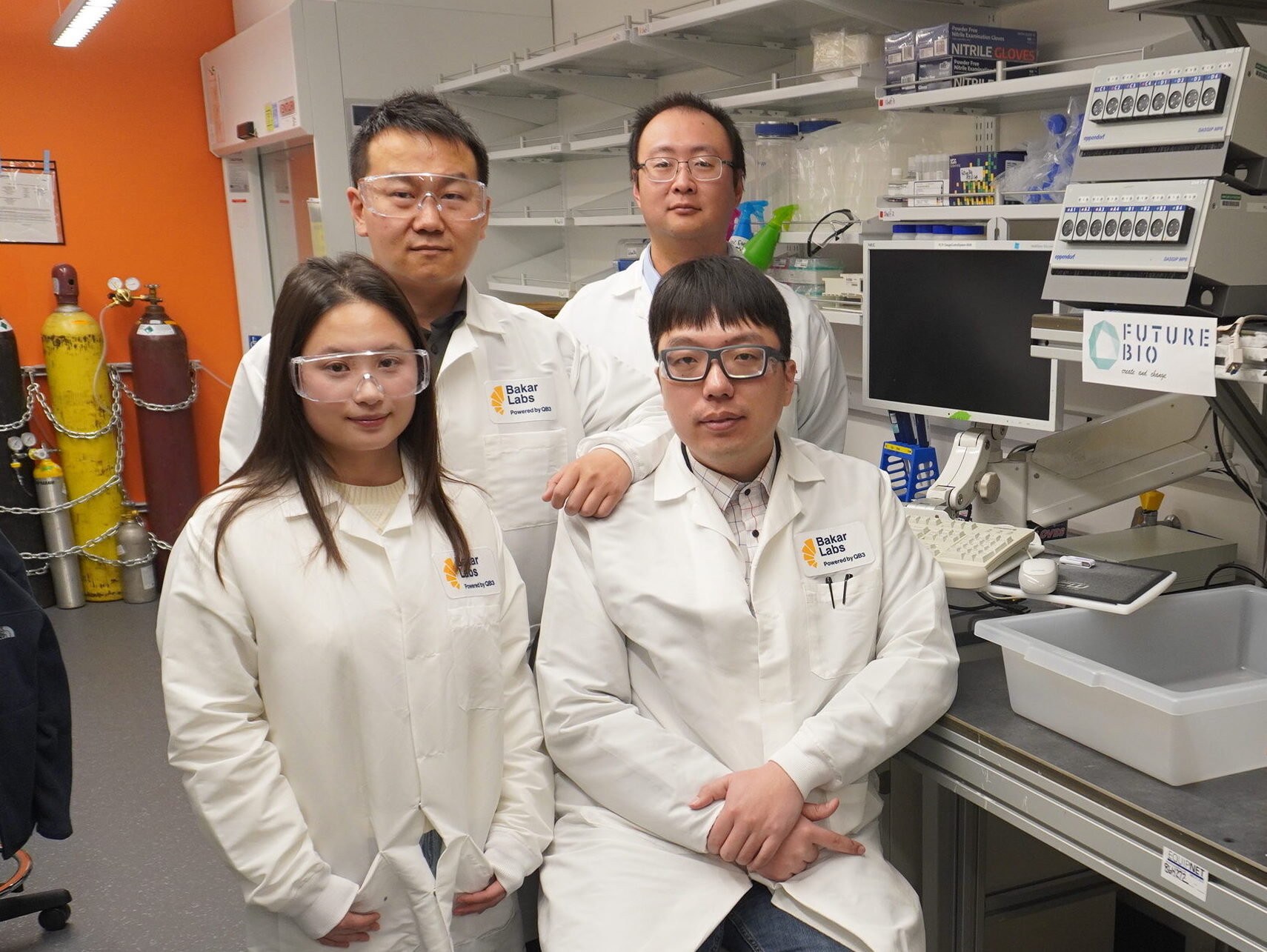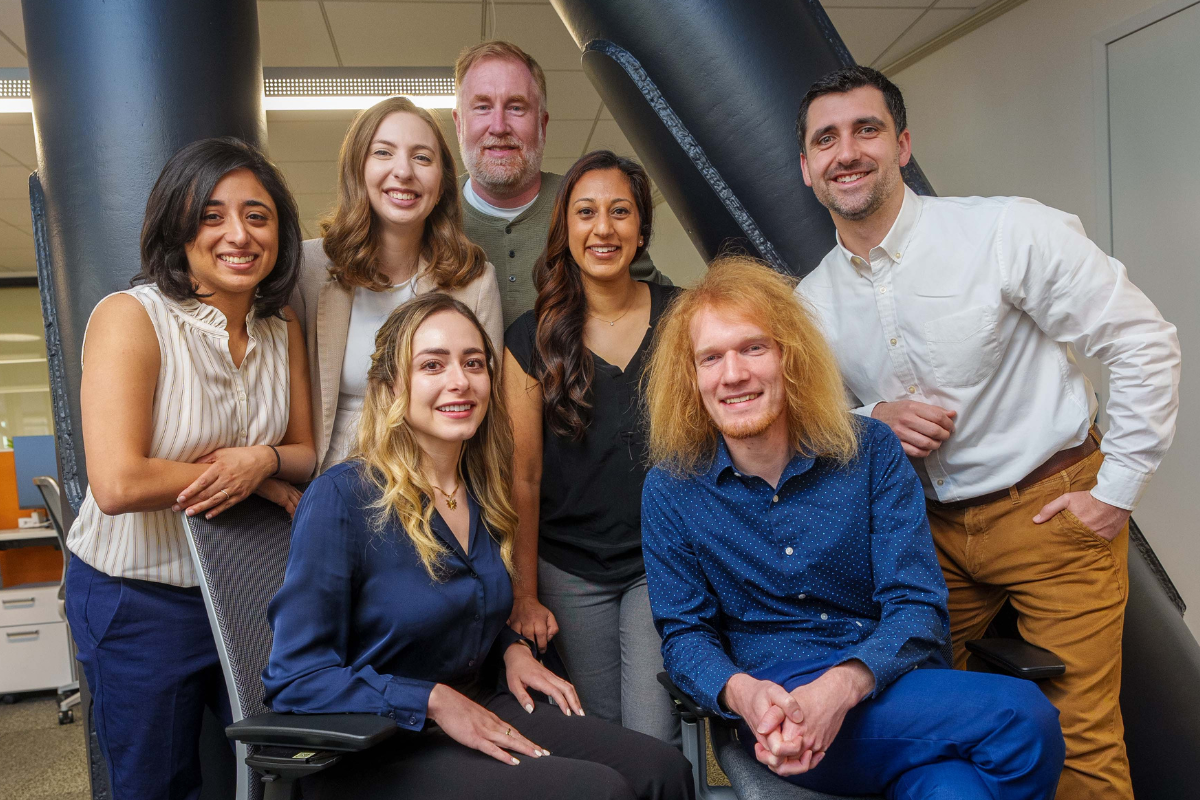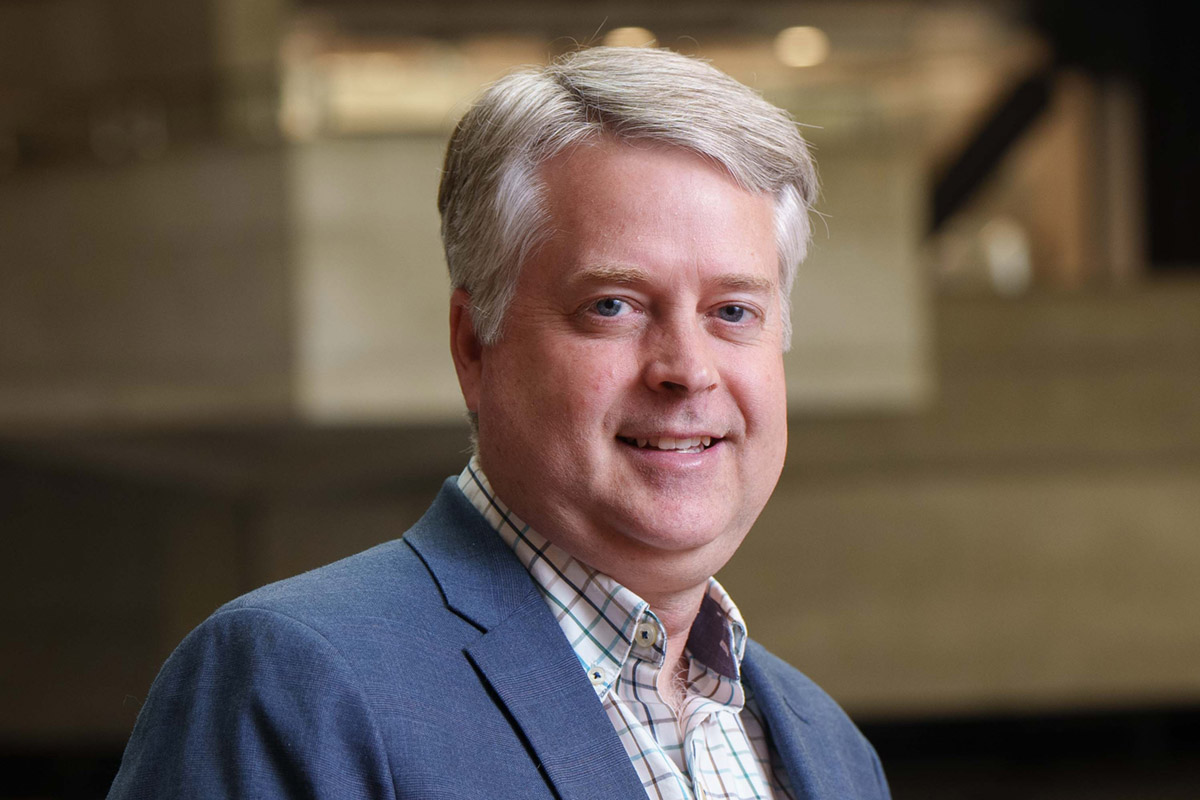Tenant Spotlight: Catena Biosciences and Next-Generation Protein Coupling
By Brightan Ying
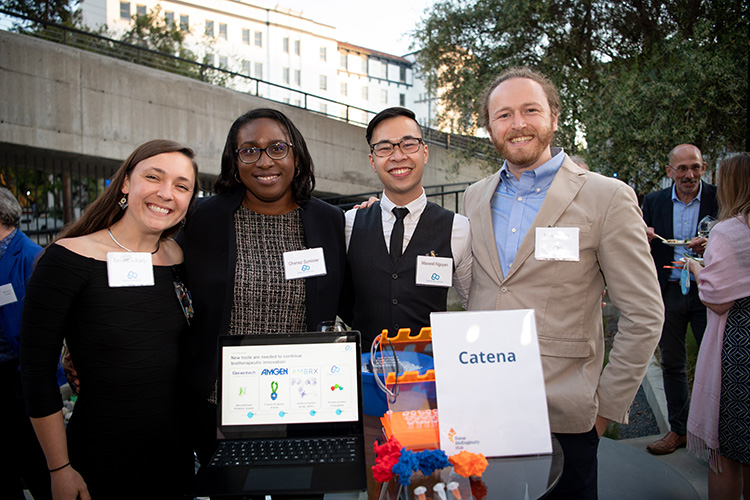
See also: Ivan Natividad’s coverage of Catena for Berkeley News.
CRISPR enables precise gene edits, and may one day help cure devastating genetic diseases such as cystic fibrosis. But how can we deliver a CRISPR system to lung tissue? Similarly, how can we direct anticancer drugs to tumors? In these two cases, and many others, the problem of delivery looms large. Often the solution lies in attaching, or conjugating, a therapy to another molecule that performs the targeting function. Marco Lobba, formerly a student in Nobel laureate Jennifer Doudna’s lab at UC Berkeley, together with co-founders Matt Francis and Geo Guillen, launched Catena Biosciences to solve the delivery problem.
Marco is Catena’s CEO. “We discovered a new protein conjugation process that allowed us to build things like CRISPR base editors,” he says. “It’s not just applicable to Cas9, but also to antibodies, cell-based therapies, and several other types of new drugs. The limit has been reached in traditional drugs — this is a really exciting opportunity to build new therapies that are not currently possible.”
Today, Marco and the rest of the Catena team are using their technology to tackle cancer and autoimmune diseases. “Autoimmune diseases are important to me because everyone on the founding team has been personally affected or directly connected to people that faced autoimmune diseases in their lifetime,” he says. “I even gave myself a soap allergy working in a chemistry lab.”
Like many other new founders, Marco and the Catena team have faced many challenges to date. One memorable problem was that early on, he made an assumption about Catena’s value proposition that led them to pursue a non-ideal application of their technology. Since then, Marco has stressed the importance of mentorship and gleaning wisdom from seasoned industry professionals.
Marco and the Catena team chose Bakar Labs for two main reasons: “First is the ease of access of the Berkeley campus resources — it’s been so much easier than we expected,” he says “The biggest one is the Berkeley Cell Culture Group. Because we’re walking distance to the cell culture facility, we can just buy a living split of the cells that are already growing and never deal with thawing or defrosting time.”
Beyond resources, Marco also greatly appreciates the networking and business development opportunities that Bakar provides: “Bakar Labs has become a new innovative center. The opportunities to interface with and meet people in the ecosystem is something that I’ve severely underestimated. The opening gala was probably my favorite moment. There were so many people I didn’t expect to meet!”
Follow Catena’s exciting work here.
